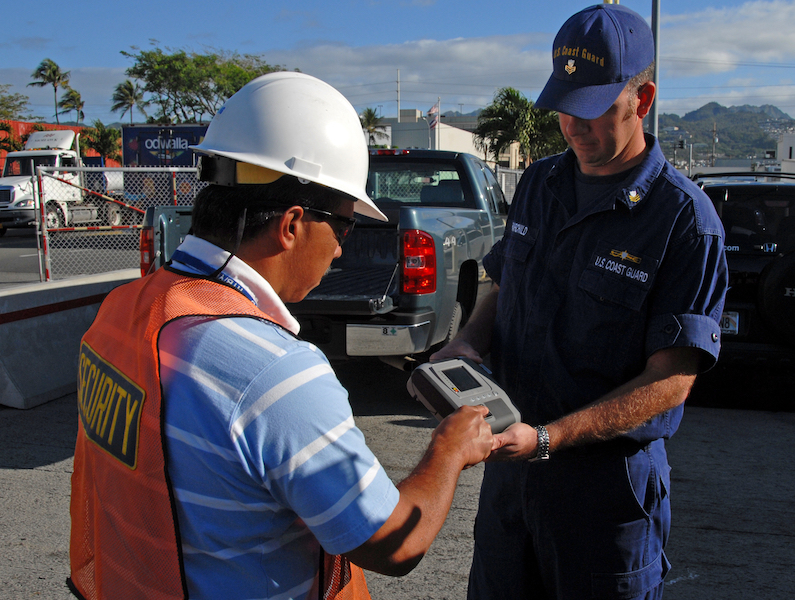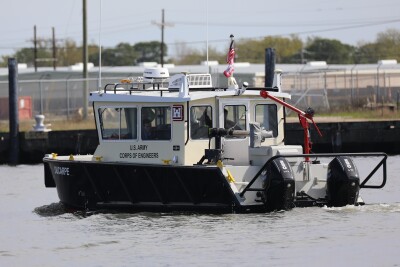The Department of Homeland Security has proposed a partial delay in final compliance of the TWIC reader regulation for three years after a host of complaints from the maritime industry, regulated facilities and shippers that the rule was confusing and the security justifications for it were flawed.
In a proposed rulemaking published June 22 in the Federal Register, the Coast Guard wants to delay the reader compliance date to Aug. 23, 2021, for two categories of facilities: those that receive certain dangerous cargoes in bulk (CDCs) by non-maritime modes of transportation such as truck or rail, and facilities that receive vessels carrying CDCs but don’t unload the cargo.
The delay would extend to barge fleeting facilities because they may receive vessels that carry CDCs in bulk but don’t engage in vessel-to-facility cargo transfers, according to Caitlyn Steward, regulatory affairs director at the American Waterways Operators.
The proposed rule, however, would not delay compliance for passenger vessel terminals that receive vessels carrying more than 1,000 passengers. They must have readers in place by the Aug. 23 deadline. The Coast Guard estimates that about 165 terminals nationally, mostly those that serve cruise vessels, would have to comply by this date, as well as ferry terminals that handle vessels with more than 1,000 passengers.
The Passenger Vessel Association says the majority of passenger vessels are exempt from the reader rule, and only a few of their terminal members, such as the Staten Island Ferry in New York, will be required to install and use readers.
PVA says it was disappointed that terminals that receive vessels carrying more than 1,000 passengers weren’t included in the delay. “The risk analysis model used by the Coast Guard in making this decision is unfortunately not available to the pubic and, as a result, PVA has no meaningful ability to comment on the risk” assigned to this group of facilities, said Gus Gaspardo, PVA president and president of Padleford Packet Boat Co., St. Paul, Minn.
He said some ferry facilities are having a hard time getting the readers in place before the Aug. 23 deadline because the vendors won’t have the units available. The Staten Island Ferry, which will need multiple readers, has been told by its vendor that the equipment won’t be ready in time.
With the help of the PVA, these operators are applying for waivers from the Coast Guard, but it’s not clear if they will be granted and if so for how long, before the August compliance deadline.
The Transportation Worker Identify Credential (TWIC) and the card reader are part of a broader Maritime Transportation Security Act (MTSA) passed by Congress after the 9/11 terrorist attacks. The TWIC rulemaking has been a long process, as it has taken the Coast Guard several years to evaluate public feedback, conduct risk analyses and develop the reader rule, which was issued Aug. 23, 2016, and set the compliance date for Aug. 23, 2018.





